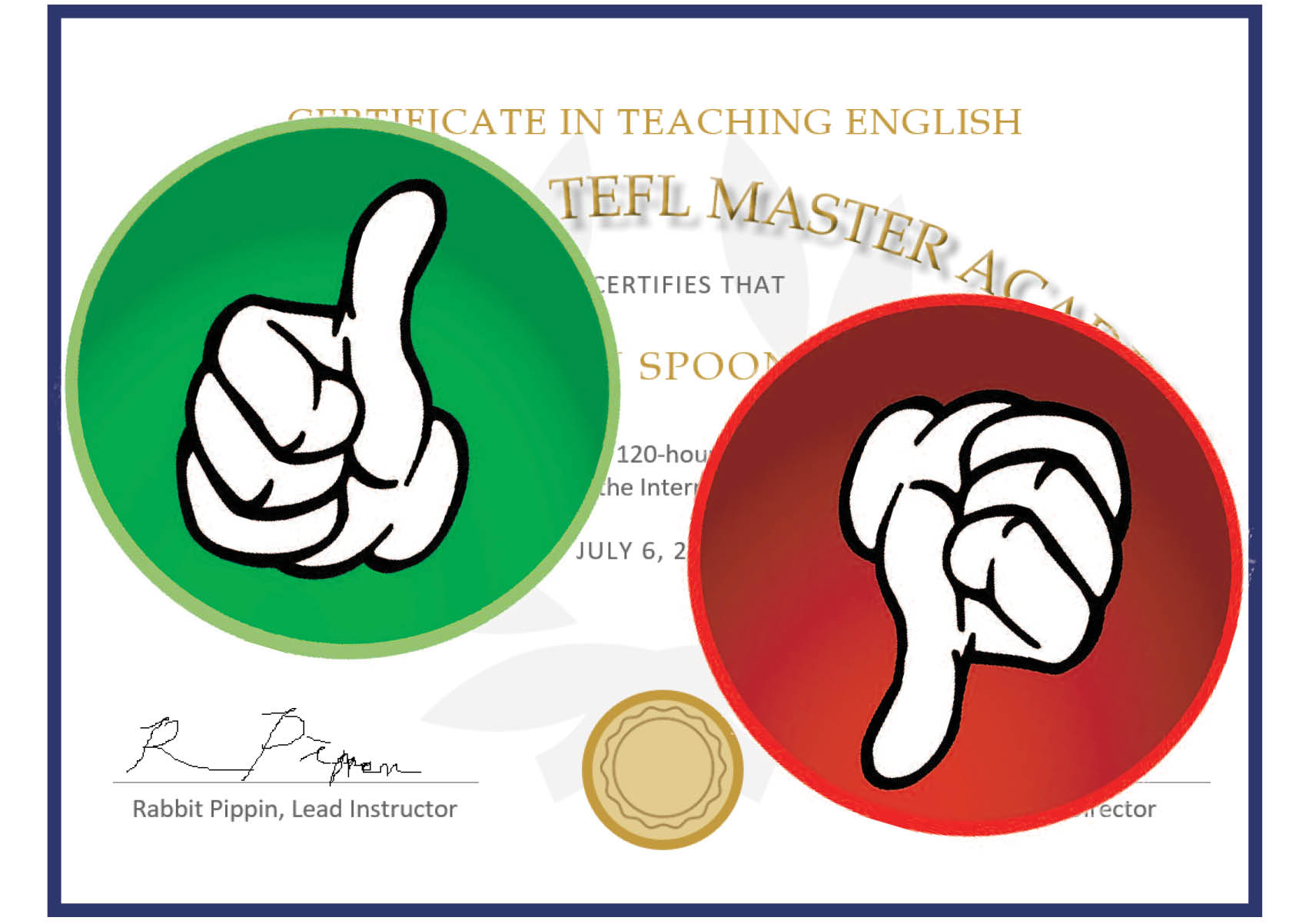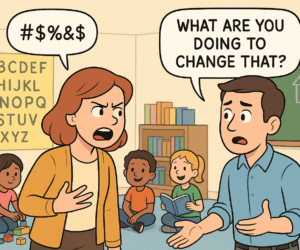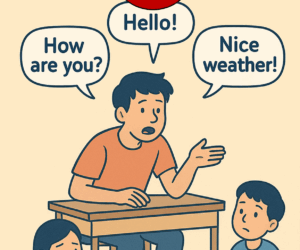The TEFL certificate industry has many good teacher trainers and rigorous certificate programs. It also has an alarming number of frauds and diploma mills. Once we step beyond widely respected names, teachers and employers need to be alert to the many warning signs that a certificate is of lower-than-advertised quality, if not outright fraudulent. However, there are some respectable bulwarks within the industry. We start with three of these bright spots:
University Qualifications
University certificates and degrees remain the most respected qualifications for English language teachers. Qualifications from established, brick-and-mortar universities especially display above-and-beyond commitment as a language teacher.
Want to teach at a university? Invest in a university degree.
Some universities offer a B.A. in TEFL/TESOL. It is a narrow degree that an undergraduate student is probably wise to combine in a double major, but such a degree stands out on a language teaching resume. Is a B.A. enough to teach at a university? Rarely, and a teacher is usually competing against a strong field of M.A.s and Ph.D.s for jobs.
Advanced university degrees offer professional training in research methods and teacher training methods, in addition to language theory and teaching methods. An M.A. in TESOL is a big investment, and a Ph.D. in Linguistics is a huge investment. The time and financial costs (both tuition and also often lost wages during the years required to complete the degree) can be immense, but these are the degrees held by committed language teachers seeking university positions.
As strong as university qualifications are, they are often not the best option for MY teachers. A MY teacher who gets an advanced degree is usually aiming to move into university teaching. Although many universities offer courses and degree programs online, barriers of geography, cost, and time can make university degrees impractical or inaccessible. Attending an in-person university program in an English-speaking country may force a teacher to quit employment. Certifications and specializations offer cheaper and less time-consuming options, while university degrees are expensive and normally take years to complete.
The CELTA
Single-course TEFL certificates developed to meet demand in the language-teaching industry. Private language schools and government teaching programs import large numbers of native speakers to teach English in countries around the world. Most such teachers do not have TEFL-related university degrees. Advanced university degrees are priced with a future university salary in mind, which can put them out of reach for many language school teachers. TEFL certificates exist to provide entry-level professional certification at a cost and time commitment accessible to most teachers.
The CELTA has become the closest thing to an industry standard among TEFL certificates. Cambridge English Assessment sets the CELTA course syllabus and rigorously regulates CELTA training centers. The 120-hour rating that Cambridge sets for the CELTA’s guided learning time has become the most common type of TEFL certificate offered around the world. Mirroring the CELTA/DELTA, Trinity College London’s CertTESOL/DipTESOL sets similar standards, with 120 hours as the entry point. Nearly every basic certificate from virtually every TEFL certificate provider is now advertised at 120 hours.
The real value of the CELTA is in its quality, consistency, and recognizability, which the rest of the TEFL industry mostly fails to replicate.
Above basic certification, there remains wide variation on course hours in the TEFL certificate industry. Courses can be found at 130 hours, 150 hours, 168 hours, 170 hours, 180 hours, 196 hours, 200 hours, 220 hours, 240 hours, 250 hours, 300 hours, 370 hours, 400 hours, and more.
What do these numbers mean? TEFL certificate providers are inconsistent with how they count course hours. Some, such as the CELTA, use “instructional contact hours” or “guided learning hours.” The hours of self-study during the course are not counted, and so CELTA’s 120 hours requires closer to 200 hours from a student. Other TEFL certificate courses use “total study time” or “time to completion,” which includes all hours spent by the student.
How accurately does a number reflect course content? A 120-hour TEFL course could be equivalent to another provider’s 200-hour course…or it might be on par with some other 40-hour or 60-hour short course. Even when courses are transparent about using “guided learning hours” vs. “total study time,” it is almost impossible to know what methods each provider uses in determining course hours. Many may rate their courses at 120 hours simply because that is the industry standard.
The strength of the CELTA is that Cambridge Assessment English maintains consistency across all CELTA providers. Teachers and employers know what the CELTA means, regardless from what training center a person obtained it. While the TEFL industry latched onto the CELTA’s 120-hour standard, the real value of the CELTA is in its quality, consistency, and recognizability, which the rest of the TEFL industry mostly fails to replicate.
Accreditation
Accreditation seems always the bright spot on the horizon for the TEFL industry. Accreditation has potential to ensure quality and make the field easier to navigate for teachers and employers, but it remains a work in progress.
Accreditation is the process by which an external review board assesses an educational institution, certification, or course for quality. The review is based on specific standards, which, if met, earn the accreditor’s official approval. An accreditor may regulate any number of metrics: student outcomes, instructor qualifications, course hours, curriculum content, business practices, and more.
A robust accreditation system takes the burden off teachers and employers to sort through TEFL certificates one-by-one. Enrolling in each course to compare quality is not needed if accreditors have done that work for us.
Employers increasingly demand accredited TEFL certificates. TEFL certificate providers increasingly obtain and advertise accreditation. With this demand, accreditors have sprung up to set standards and review courses.
A significant part of the work we have done at MY English School this year is attempting to sort through the accreditation field to determine what we can regard as reliable, what is potentially suspect, and what is obviously fraudulent.
This said, accreditation has not cleaned up the TEFL field yet. Accreditors, even rigorous ones, do not all evaluate on agreed standards. Most accreditors have a small footprint, regulating fewer than perhaps five TEFL courses. Some accredit only one or two. Accreditation is more informative and allows better apples-to-apples comparisons when accreditors share similar standards and accredit larger numbers of courses. An industry standard for TEFL accreditation is still in process.
The positive image that accreditation lends to a TEFL course is also its own worst enemy. For every good accreditor that sets and enforces rigorous standards, there is a sham accreditor or false claim of accreditation. Shoddy TEFL certificate providers have doubled down on their false advertising. The following are all-too-common:
Fake accreditors. An unscrupulous school wants accreditation for marketing purposes, but does not want to pay or go through the trouble, so the school sets up its own accreditation agency to accredit itself. The cost of this? Usually no more than the price of a new web domain.
False claims. Why go to the trouble of creating a fake accreditor? Many schools simply make misleading claims about accreditation. Unless a teacher or employer confirms with the accreditor, a false claim slips by unnoticed.
Accreditation mills. A TEFL provider may get accredited, but just as there are diploma mills, there are also accreditation mills. Send the accreditor money, and you can advertise that they accredit you.
Accreditation is intended to add trust and quality in the industry. Instead, accreditation currently adds confusion. Teachers and employers, in addition to sorting flimsy and fraudulent TEFL certificates from rigorous ones, now also have to sort flimsy and fraudulent accreditations from the rigorous and legitimate ones. Accreditation can add surety to the TEFL industry, but it can also add an additional layer of uncertainty.
A significant part of the work we have done at MY English School this year is attempting to sort through the accreditation field to determine what we can regard as reliable, what is potentially suspect, and what is obviously fraudulent.
While private accreditors (some rigorous and reliable, some less so) have operated for many years, government-recognized accreditation was scarce until recently. OnTESOL’s TESL Canada accreditation stood out as a robust TEFL option for MY teachers a decade ago because the government recognized the qualification as valid to teach in Canadian schools.
However, no government-recognized standard has gained widespread acceptance internationally. In the case of TESL Canada, the trend moved in the opposite direction. At least one online provider that previously used TESL Canada’s standards dropped TESL Canada for a private accreditor. The 2018 standards revision that required every person registered in the diploma course to have a bachelor’s degree was a deal-breaker. Most TEFL programs, especially online providers, want their courses open to anyone competent in English.
The introduction of England’s Ofqual framework sparked a notable shift since 2010 in the TEFL industry toward government-recognized accreditation.
The introduction of England’s Ofqual framework sparked a notable shift in the TEFL industry toward government-recognized accreditation. Ofqual, a government agency, regulates education, testing, and qualifications based on course hours and attainment level. Ofqual in turn authorizes private awarding organizations (such as TQUK, Qualifi, Highfield, or Gatehouse Awards) to establish specific qualifications for various fields and courses, ranging from hairdressing to engineering, drone operation to social work, catering to construction, and more.
Is Ofqual the same as accreditation? Some in the TEFL field dispute Ofqual accreditation. Ofqual does not accredit in the same way that higher education accreditors accredit entire institutions. Ofqual does recognize awarding organizations to accredit specific qualifications.
A number of TEFL providers have seen the opportunity that the Ofqual framework provides. Following Ofqual’s 2018 decision to expand regulation to technical qualifications, “Ofqual Level 5” certificates became increasingly common, if not as a TEFL standard, at least as a marketing device. Although the CELTA has arguably always been more rigorous than other TEFL standards set within the Ofqual framework, the CELTA, being based in the U.K., also falls under Ofqual regulation as a Level 5 certificate.
Ofqual-regulated qualifications are described in two parts, e.g., “Level 5 certificate” or “Level 6 diploma.” These two parts express the attainment level and time required for the qualification.
Ofqual distinguishes between guided learning hours and total qualification time. Based on total qualification time, the following qualifications can be earned:
Award (up to 130 hours)
Certificate (130 hours up to 370 hours)
Diploma (370 hours and over)
Ofqual additionally regulates qualifications based on attainment level (difficulty) of the coursework, e.g., Level 3 is equivalent to high school diploma-level coursework, Level 6 to undergraduate university degree-level coursework, and Level 8 to doctoral-level coursework.
Ofqual’s terminology is far from universally adopted in the TEFL field. These labels take on entirely different meanings in other frameworks. OnTESOL’s 250-hour diploma, for example, would technically qualify as a “certificate” under Ofqual’s terminology. ACTDEC, a U.K.-based private accreditation company, revised its standards in 2013 to more closely follow the Ofqual framework. ACTDEC uses similar-sounding levels to rate qualifications, but with a significant difference: course hours and difficulty level are lumped together in one rating. This stands in contrast with Ofqual’s division of hours and attainment.
A comparison of Ofqual’s attainment levels and ACTDEC’s qualifications:
Ofqual attainment levels (with award, certificate, and diploma qualifications at each level):
Level 3: High school diploma, A Level, International Baccalaureate
Level 4: Introductory university-level coursework, non-degree university awards or certificates
Level 5: Two-year university degree (Diploma of Higher Education, Associate’s degree)
Level 6: Undergraduate university degree (Bachelor’s degree)
Level 7: Master’s degree
Level 8: Doctorate
ACTDEC qualifications:
Level 3: 120-hour certificate (foundation-level, introductory coursework)
Level 4: 150-hour certificate (foundation-level, introductory coursework)
Level 5: 250-hour certificate (pre-diploma, university-level coursework)
Level 6: 450-hour diploma (postgraduate-level qualification for experienced teachers)
As a further comparison, Ofqual’s levels also differ from TESL Canada’s standards. A TESL Canada Standard Two diploma, for example, requires 250 hours of coursework and 50 hours of practicum, and all course registrants must already possess an undergraduate bachelor’s degree. This might put TESL Canada Standard Two on par with a Level 6 certificate in the Ofqual framework. TESL Canada’s Standard Two might match ACTDEC’s Level 5 in course hours and Level 5 or 6 in difficulty level.
Within the TEFL industry, labels remains frustratingly inconsistent. Consistency is an advantage that accreditation may eventually bring about, but we are not there yet.
Consistency is an advantage that accreditation may eventually bring about, but we are not there yet.
Following the development of England’s Ofqual regulations (and similar regional frameworks in the rest of the U.K.), some U.S.-based TEFL providers have begun to follow suit in seeking government-recognized accreditation. The number of accredited TEFL providers remains small, but at least two Department of Education-recognized accreditors for continuing education and distance learning, ACCET and DEAC, now accredit TEFL certificates. Counterparts in the U.K. such as the BAC and ODLQC do the same. Other countries have also established various regulatory and accrediting agencies. Meanwhile, private accreditors such as ACTDEC and IATQuO continue to offer accreditation options outside government frameworks.
An employer or teacher needs to be familiar with the various accreditation frameworks in order to make use of them. A TEFL certificate provider may vaguely advertise “Level 5.” What “Level 5” actually means depends on what framework, if any, the TEFL certificate is accredited under.
Back to the TEFL Problem
Identifying good accreditors and good TEFL certificate programs remains a challenge. Unscrupulous organizations often market themselves well. Fraudsters are most successful when they offer an appearance of legitimacy. There is no magic formula for digging beneath the surface to find the truth about an accreditor or TEFL certificate provider.
Teachers can do their part by examining programs closely before registering for a course. Check with your employer or prospective employer to find out what certifications they accept (and reject). Do not leap at the cheapest option or go with whatever is near the top of a web search result. Treat certification as a professional investment.
Employers can do their part by similarly examining courses before accepting any certificate. Do not accept certificates no-questions-asked. Demand certificates that have potential to develop your staff into better teachers.
How can teachers and employers distinguish good accreditors and good TEFL certificate providers from bad? Do your homework.
How can teachers and employers distinguish good accreditors and good TEFL certificate providers from bad? Do your homework. Here are two lists of red flags to watch for that can help cut through some of the confusion:
Thirteen red flags for accreditors
- Vague or no accreditation standards. Good accreditors make their accreditation standards transparent. Standards are specific about course hours, course content, instructor qualifications, student outcomes, business practices, and so on. If the accreditor makes only vague statements about standards or lists no standards at all (or plagiarizes standards from another accreditor), this is a major red flag. This accreditation service may be a sham.
- Lack of clarity about what they accredit. An accreditor may accredit an institution, a course or program, or a qualification. Accreditors that are vague about what they accredit probably do not actually accredit anything.
- Lack of information about the accrediting board. Especially for private accreditors, accreditors should be transparent about who they are. If an accreditor does not list who is on the accrediting board, this can be a cause for concern.
- Conflicts of interest. Sometimes accreditors list who is on their accrediting boards, but it just so happens that those people are owners or directors of the same TEFL providers that the accreditor regulates. This is a no-no. Good accreditors are fully independent.
- Only accredits one school. If an accreditor regulates institutions in many other fields, but only one in TEFL, this raises a worry about what TEFL-specific standards have been developed. An accreditor that only accredits one school total in all fields? Highly suspect. It is worth checking if the website domain owner of the accreditor and the school happens to be the same person.
- Unaccredited “membership.” Some accreditors offer a regular accreditation option. For a cheaper price, they also offer an unregulated “membership” that allows the school to use the accreditor’s logo in advertising. Can anyone explain how such memberships are anything but a sleazy marketing gimmick?
- Short turnaround time for accreditation review. Thoroughly examining course materials, instructor qualifications, student outcomes, and everything else that ought to go into accreditation takes time. An accreditor promises super-fast turnaround to get accredited? You’re likely getting the fast-food version of accreditation.
- Permanent accreditation, no periodic review. Accreditation should be reviewed and renewed periodically. If accreditation once is good for all time, it loses its meaning.
- Over-reliance on self-reporting or self-review. Good accreditors gather information from institutions, independently verify that information, and independently evaluate it. A TEFL provider reflecting on its teaching and business practices is good. However, if an accreditor leaves most of the accreditation process to self-reporting or self-review, is the accreditation mark little more than a school patting itself on the back?
- No onsite inspection. With some online TEFL providers, there may be no option for physical onsite inspection. A good accreditor, however, puts boots on the ground…even if that ground happens to be virtual.
- No public listing of accredited organizations, courses, and awards. An accreditor should always be transparent about who and what it accredits. If there is no website listing, publicly accessible database, or other simple way to verify accreditation, this is a major red flag.
- Not actually an educational accreditor. Misleading claims in this area often fall more to TEFL providers than to accreditors themselves. An institution that certifies ISO 9001 quality management practices offers a perfectly legitimate certification. When a TEFL provider then passes ISO 9001 certification off as educational accreditation? Not so much. Likewise, a TEFL provider has membership in an industry trade group that exists to promote TEFL? Great! Claiming trade group membership as educational accreditation? Not great.
- False claims of government recognition. People tend to trust private organizations more if they are regulated or recognized by the government. Accreditors sometimes abuse this with misleading claims. “I have a government-issued tax number, and therefore you should trust everything I say” sounds absurd, but some accreditors advertise their credibility in essentially this manner. A government registry, such as a charities index or registry of companies, is not the same as government regulation or approval and does not equate to valid accreditation.
Eighteen red flags for TEFL certificate providers
- False claims of accreditation. TEFL certificate providers can make any number of misleading claims about accreditation. Outright fraudulent use of an accreditor’s name and logo happens. Some TEFL certificate providers get one course accredited and then claim accreditation for all courses. Or maybe the TEFL certificate was accredited 15 years ago, but accreditation lapsed, and somehow the TEFL course’s website never got updated. Verify with the accreditor.
- Self-accreditation. Does the TEFL provider claim to accredit itself? Or did it create its own accreditation agency? It is not actually accredited.
- Vague, misleading claims about certificate validity. TEFL certificate providers may make any number of claims about the validity of a certificate internationally, or that it is recognized by this authority or that. Such claims are occasionally true, but more often they are false. The more vaguely worded the claims are, the more likely they are false. “This certifies that _____ completed such-and-such TEFL course” sounds less impressive than “This certifies that _____ is globally approved to teach English as a foreign language,” but accurate and honest is preferable to flashy lies.
- Using affiliations or registrations to imply accreditation. Affiliations with other institutions are not bad. Registering as a legal company is good and necessary. Using those affiliations or registrations to claim accreditation? No.
- Accredited by a non-accreditor. Claiming accreditation through organizations that do not do educational accreditation seems silly. The organization explicitly states on its website that it is not an accreditor. Why then claim to be accredited by that organization? The expectation is that you won’t check. A lot of TEFL providers do it.
- Certificates based on “experience.” Rigorous certificate courses may include a teaching practicum that adds teaching experience on top of course work. That’s legitimate. A TEFL certificate provider offers a certificate based on an affidavit of one’s own experience (plus $100)? No.
- No verification system for certificates. Give me five minutes on a computer, and I can make and print a certificate. Give me thirty minutes, and I can make a passable facsimile of an actual TEFL provider’s certificate. Good TEFL providers give teachers and employers a way to verify validity of certificates.
- Shell companies. One does not expect a TEFL certificate provider to be named in the Panama Papers, but it happens. What need does a TEFL provider have of shell companies? Yes, a TEFL provider with branches in multiple countries may need to be incorporated in each country. But does the TEFL provider create multiple companies with different names? Strange. Does it claim independent affiliation with those same companies to boost its credibility? Suspect. Does it hide that all of these are, in fact, the same company, owned by the same person? Highly suspect.
- New name. Sometimes companies rebrand and rename themselves. What reason would a TEFL provider have for doing so? It is possible the school’s purpose and vision changed. It is also possible that the old name was tainted with a bad reputation. With a name change, is the TEFL provider stepping toward something or running away from something?
- Affiliate marketing. Those positive, “independent” reviews you read on other websites? A few might be real. A lot are affiliates earning sales commissions. Some TEFL provider websites act as affiliates for other TEFL providers, marketing their courses and certificates, sometimes with separate packaging and pricing. Sometimes affiliates pose as independent websites or as reviewers to promote certain TEFL certificates. They may use external platforms (social networking sites, the question-and-answer website Quora, etc.) to push their sales pitches.
- Outrageous claims. How many TEFL certificates does this provider boast to have issued in the past year? Think hard about how realistic that number is.
- Grammar, punctuation, and spelling errors. Everyone is guilty of a typo once and again. Does a misspelling, bad grammar, or wrong punctuation make you a liar? No, but when a TEFL certificate provider’s website is full of errors, there is reason not to trust.
- Plagiarized content on website. A CELTA-authorized center copying course descriptions on its website from Cambridge English Assessment is perfectly legitimate. But when a TEFL provider rips off language from an unaffiliated school or accreditor? A TEFL provider that cannot be bothered to create its own website content probably cannot be bothered to create rigorous course materials or hire serious instructors either.
- No listing of owners and instructors. Good schools advertise their teachers. They are transparent about their management and ownership. No information about the TEFL course instructors? It makes one wonder, does the course have any instructors at all?
- No physical address or a fake physical address. Schools, even online schools, are based somewhere. No address? Why doesn’t the TEFL provider want people to know where it is located?
- Stock photos exclusively on website. Sometimes a stock photo stands in well. A TEFL provider’s website is nothing but stock photos? It is not proof of malfeasance, but the bland images with no actual connection to the school do not build trust either.
- Price. This 120-hour TEFL certificate is only $120! Do the math. Even if 100 of those guided learning hours are via videos and a textbook, can the TEFL provider pay an instructor for the remaining 20 hours with $120? Quality instruction has a cost. A TEFL certificate priced absurdly low cannot possibly pay for quality instruction.
- Reputation. Reputation is not what a TEFL provider claims about itself on its own website. Reputation is what spreads about that TEFL provider elsewhere. Search for the TEFL provider, owner, or instructors elsewhere. What do people say about them? You might find something pleasantly positive…or you might not. (But keep in mind that disreputable TEFL providers often spam other sites with fake positive reviews of themselves.)
The TEFL certificate and accreditation fields remain a mix of respected, quality institutions, mediocre competitors, and blatant bad actors. The onus is on teachers and employers to discern what is rigorous and legitimate and what is not. We can rely on respected accreditors to an extent, but teachers and employers still, in many cases, have to perform the work of an accreditor. Do not trust what is on a TEFL certificate provider’s website. With both the certificate provider and accreditor, verify externally.
Check back on Friday for the final post in this series. We will look at how MY English School is moving forward with our TEFL certificate requirement by balancing trust in accreditors with external verification and building a review process for certificates and accreditors.
Part 1: The TEFL Problem
Part 2: Why TEFL?
Part 3: Three Bright Spots in the TEFL Industry (and a lot of red flags to watch for)
Part 4: Moving forward on MY’s TEFL certificate requirements









